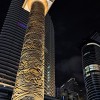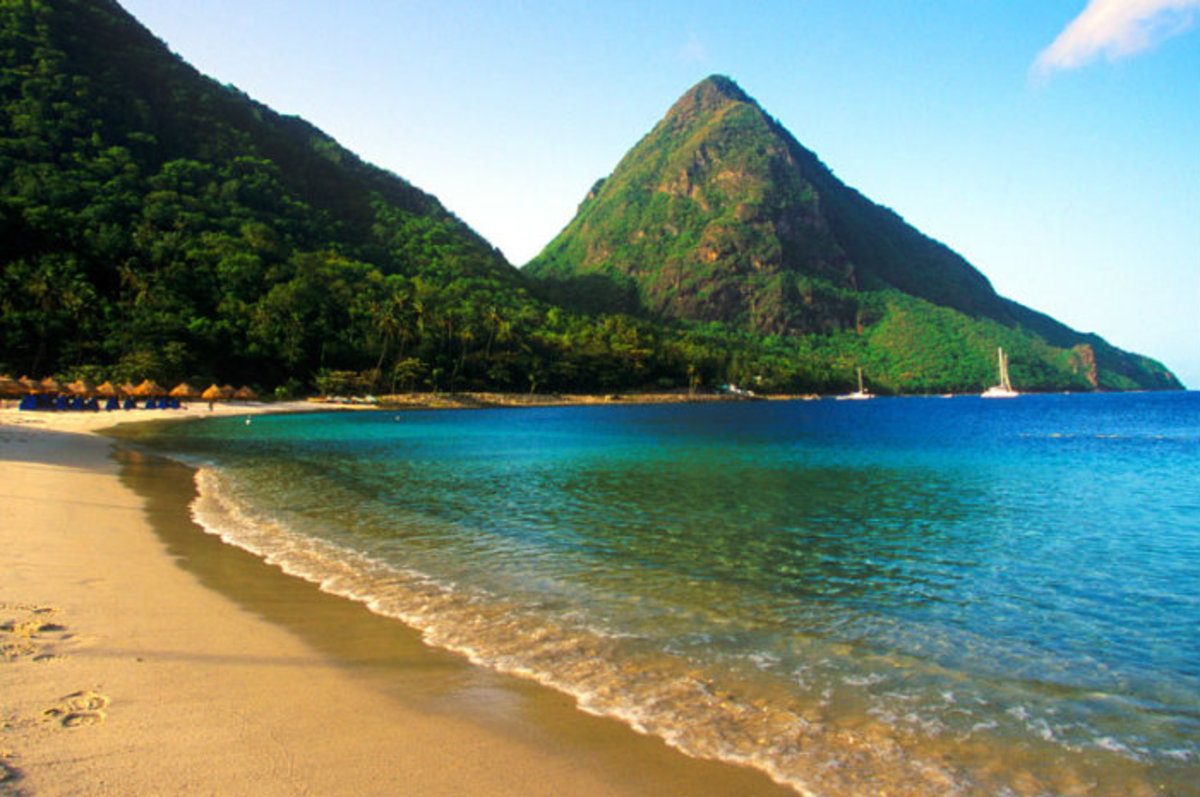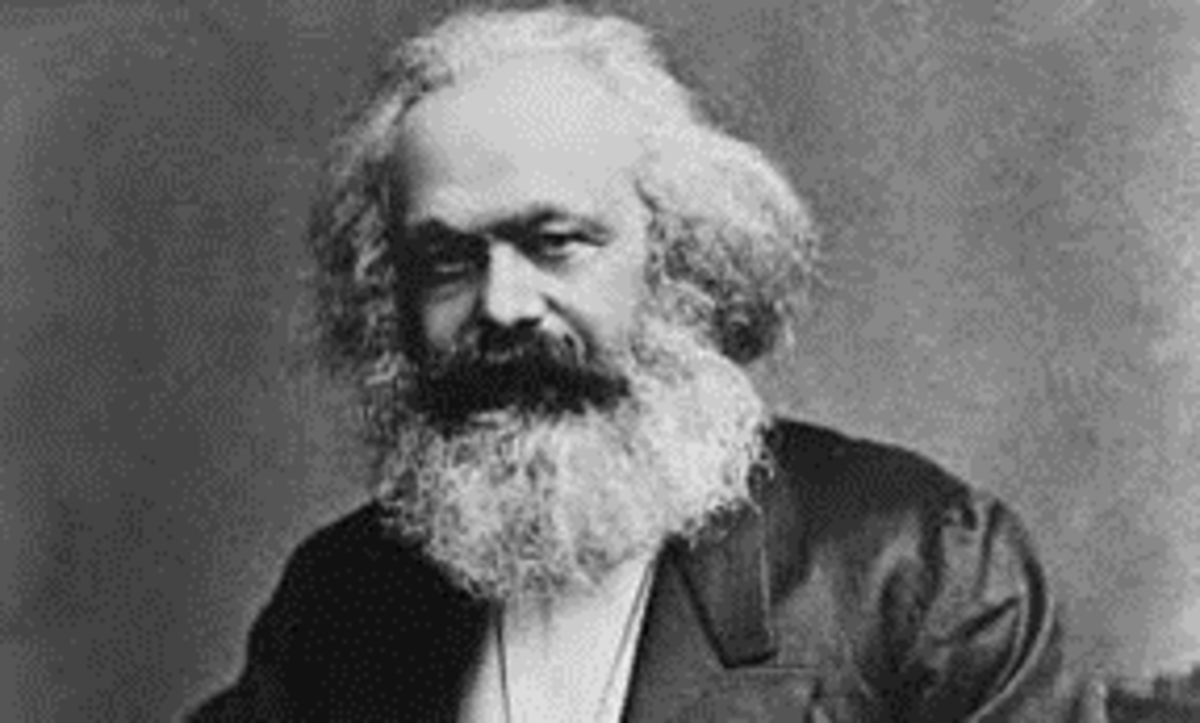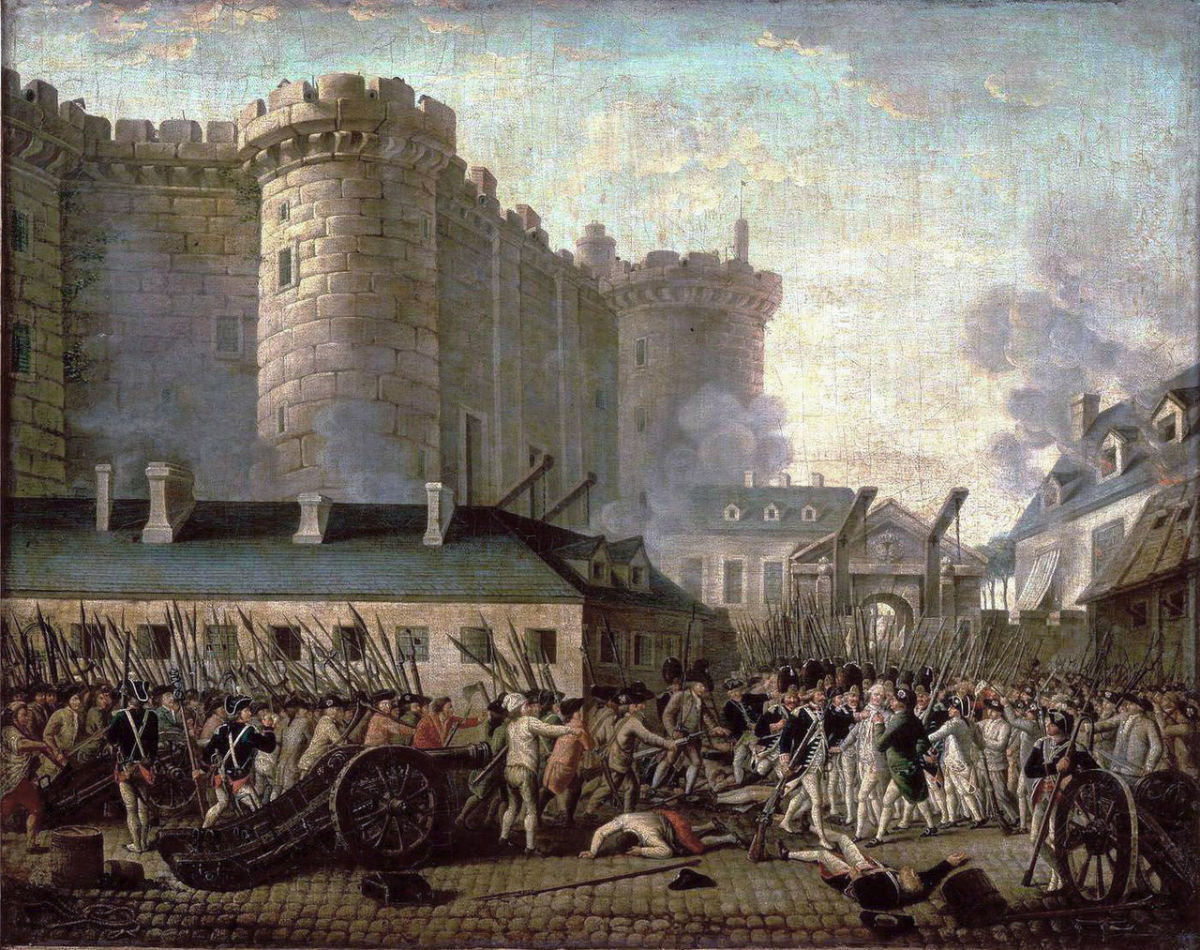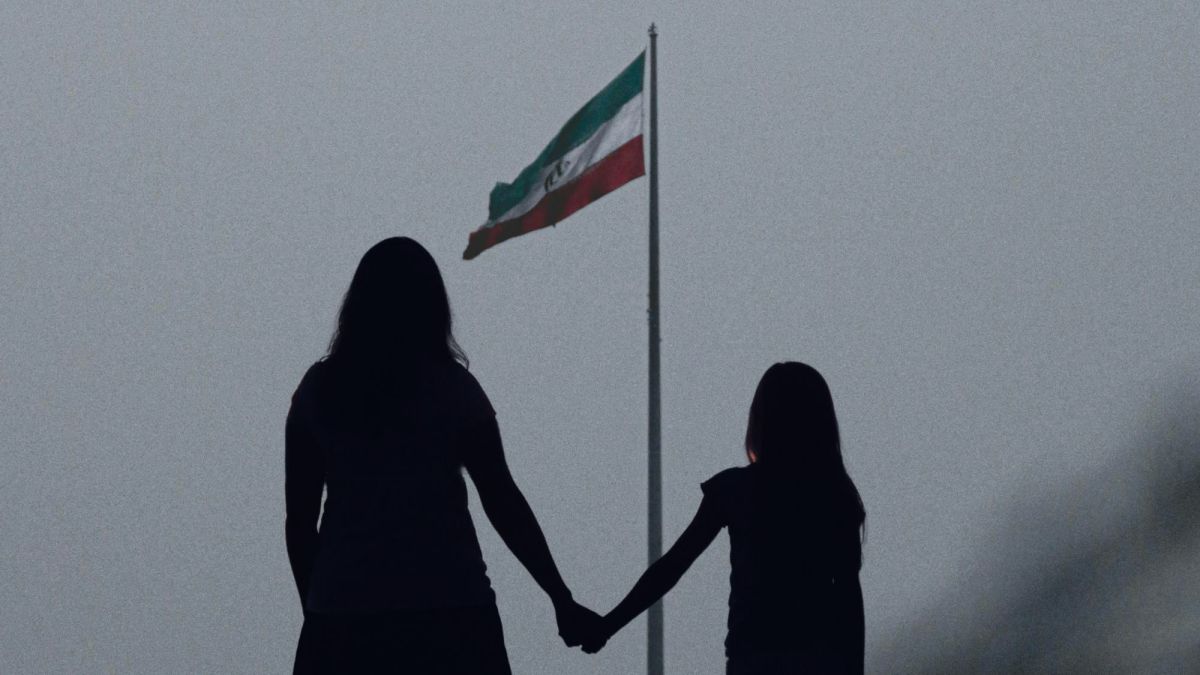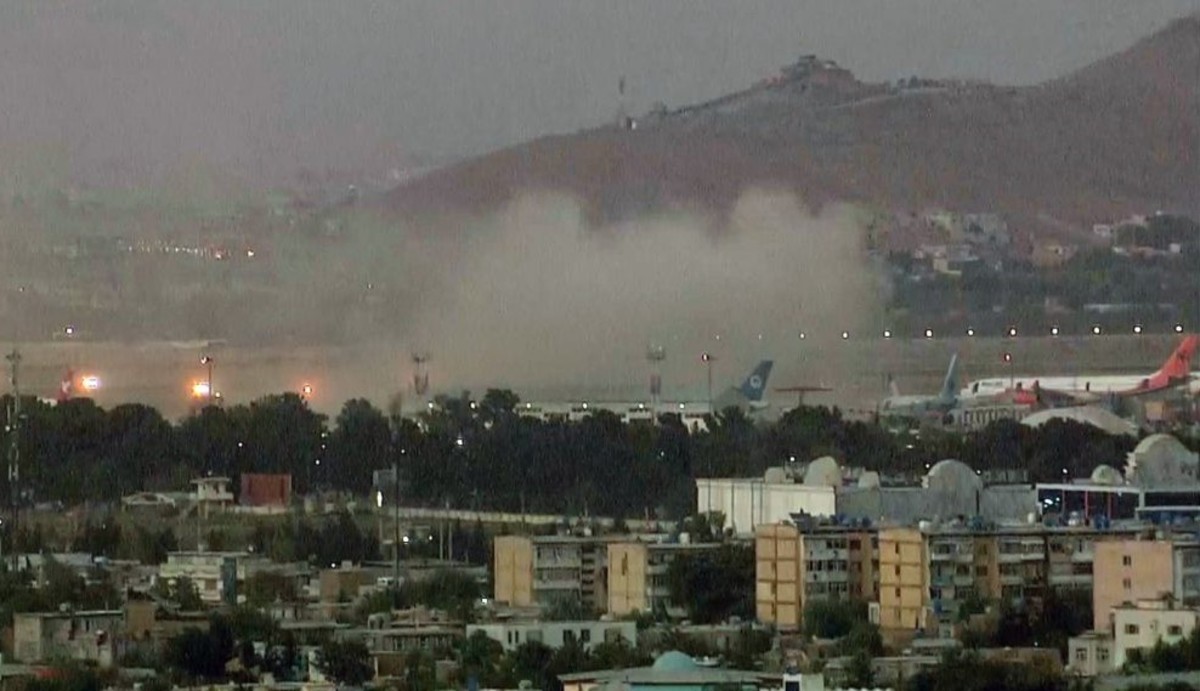The Rojava Revolution & A New USA
Bookchin and Öcalan
Murray Bookchin was a titan; a titan of the eco-socialists of Burlington, Vermont from the 1970s-90s, perhaps, but a titan nonetheless. An American writer and political philosopher, his ideas were in a constant state of flux, moving from Marxism to anarchism to the “communalism” of his own invention late in life. By the end of his days, it is said that he thought his life’s work a waste. Never was he able to see his ideas brought to fruition; not all around the world, nor in any distant country, nor even in his beloved hometown. After a few years of failing health, Murray Bookchin passed away in 2006. In those final few years, however, his philosophy’s fortunes took a sharp and unexpected turn; even if the man himself didn’t live to see how sharp of a turn it truly was.
In 1999, the former leader of the Kurdish PKK militia, Abdullah Öcalan, was serving a life sentence in a Turkish prison on the island of İmralı. It was here that he, a diehard Marxist, discovered Bookchin (among a whole host of other authors, most notably Friedrich Nietzsche). His prior ideology was promptly pummeled out of relevance within him. Over the next few years, Öcalan went to work interpreting Bookchin’s works to Middle Eastern society. He requested to hold a meeting between the two of them in 2004, but by then, Bookchin was too frail to oblige him. Nonetheless, the next year, Öcalan declared his wish for the PKK and other Kurdish organizations across Turkey, Syria, Iraq, and Iran to implement Bookchin’s ideas in a uniquely Kurdish way. It was this interpretation of Bookchin that Öcalan dubbed “democratic confederalism”. From that point on, Öcalan would promote his new ideology from his little prison island, as well as expanding upon it in additional works. These included introducing “jineology”, or the science of women, to the world; a form of feminism designed to dismantle the deep-seeded patriarchy in Middle Eastern society.
Perhaps it should be noted that, for us English speakers, the term “Kurdish communalism” may be more appropriate. This name gives off a stronger sense of correlation between Bookchin and Öcalan, and in its addition of “Kurdish”, it encourages the realization that communalism can be interpreted to other regions of the world, as well. This is, of course, not to mention the fact that few Americans are ever actually going to take the time to figure out what democratic confederalism is supposed to be. As Öcalan himself most often refers to his ideology as democratic confederalism, however, that’s what we’ll stick to as we delve into how this ideology was soon implemented in the real world.
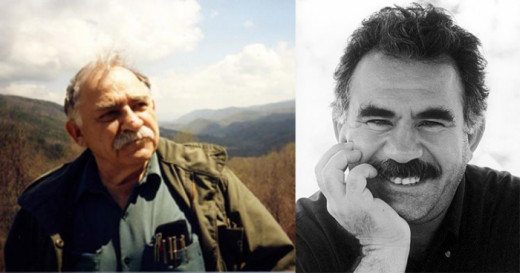
The Rojava Revolution
Syria is a nation of great ethnic, linguistic, religious, and cultural diversity – not at all the solely Arab country many Americans seem to think of it as. Much of this diversity lies around the Mediterranean coast and greater Damascus area, including significant populations of Alawites, Arabs, Circassians, Druze, Imamis, Ismailis, Levantines, Nusairis, and others. East of the Euphrates River, however, lies another hotbed of diversity, even if the region is mainly dominated by the Kurds, with groups such as Arabs, Aramaeans, Armenians, Assyrians, Turkmen, Yazidis, and others still inhabiting the area. Thus, when Kurdish militias affiliated with Öcalan’s PKK started taking northern Syrian towns in 2012 amidst the escalating civil war, they had no plans to make their territories into a Kurdish ethno-state. Instead, through seven years of civil war, a flurry of foreign intervention, the rise and fall of ISIS, and all the way up until the Turkish invasion of 2019, the YPG, YPJ, and SDF militias worked to create a communalist society for everyone.
The massive structural changes brought about by the people of this region – known mainly as Rojava – can justifiably be called a total social revolution. Thus we reach the Rojava Revolution. Despite sanctions and embargos from surrounding countries, Rojava has managed to revolutionize its economy by fighting hierarchy and gender discrimination in the workplace, introducing worker co-ops, funding a public school system, and distributing essential products like bread and water to those in need – and all with little to no taxes, depending mostly on exports for income. The “Make Rojava Green Again” campaign is working toward making the region self-sufficient and ecologically sustainable, helping to reverse the damage done by decades of harmful agricultural and industrial practices. Prisons have seen the first steps of reform in order to replace punishment with restorative justice wherever possible. Direct democracy and people’s councils have been set up across the area, and the general populace has a firm voice in all political decisions. Women’s councils designed to achieve gender equality after millennia of oppression make up a good portion of these people’s councils. Ethnic minorities have been granted the freedom to speak their languages, practice their religions, and express their cultures like never before. The Rojava Revolution has radically altered Syrian society east of the Euphrates, and few would argue the changes are for the worse.
The YPG, YPJ, innumerable local militias, internationalist volunteers, and later on, the SDF (a massive military coalition in Rojava) were instrumental in defeating ISIS. They implemented what just might be the most important social revolution of this century. They made what was once dismissed as a utopian fantasy into a reality. Nonetheless, in the fall of 2019, the US withdrew its troops from the area, and Turkey hastily launched an invasion of Rojava. For the Turkish government, an invasion was likely the most sensible option; such an act both dashes the dreams of Kurdish separatists in Turkey and gives the government a place to relocate its millions of Syrian refugees. Since then, the SDF has cooperated with Assad’s Syrian Arab Armed Forces and even allowed these forces entry into Rojava in their struggle against the Turks. Assad is no wholehearted ally, however, and he’s taken the opportunity to reestablish his political power in the region. The autonomy and territorial integrity of Rojava are all in shambles. The future is uncertain, and all the freedoms gained in recent years hang in the balance. What was once a shining example to all lovers of liberty is now in danger of destruction. Even if Rojava suffers wholesale annihilation, however, the inspiration it gave the wider world will be far harder to kill. Communalism doesn’t have to go down with Kurdish communalism.
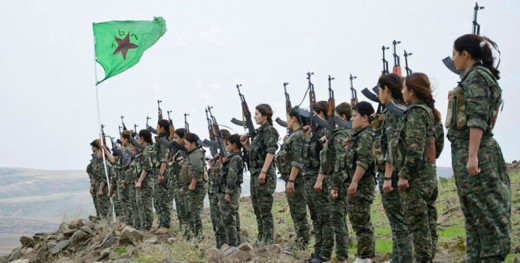
A Future American Communalism
And here, at last, we see the point of our earlier departure on Kurdish communalism being a better name than democratic confederalism. The “Kurdish” in Kurdish communalism can be swapped out for any number of nations or areas – including, of course, America. But how could, and why should, American communalism ever come to be? The answer lies back where the story all started; Burlington, Vermont. This exceptional little town has, twice in the past four years, been the epicenter of a national movement to resurrect the American Left, and despite its defeats, said movement never truly died. Very simply put, Bernie Sanders’ political revolution isn’t just going to simmer out of existence. The coalition he built is mostly young and extremely pissed off, and they’re not going to sit tight and shut up just because their guy lost. The kids can see that the world isn’t alright. They want change, and they’ve been taught twice over that working within the system will never bring this change. Swapping Bernie out for Bookchin – another product of late 20th century Burlington – might just be the perfect play for the Gen Z revolutionaries.
Of course, the American situation wasn’t always so dire that we’d need to be talking about revolution in the first place. In the 1930s, when America was wrapped up in the Great Depression, the Dust Bowl, and the rise of fascism and erosion of peace abroad, the working men and women most likely to take up arms never so much glanced at their guillotines and guns. This time, though, it’s different. Back then, America had Roosevelt to guide it through its countless crises, implementing many meaningful reforms along the way to placate the common people. The government, at least to some extent, responded to the outcries of its citizens. Such a dialogue between the ruling and the ruled is open no more. In truth, it hasn’t been open for decades. Our infrastructure is crumbling. Our healthcare system is in shambles. Our environment is on a collision course with catastrophe. Our troops are dying en masse in pointless foreign wars. Our police are terrorizing those they swore to protect with almost absolute impunity. Our landlords and employers are screwing over working people in the midst of the worst pandemic since the days of Russian tzars and Ottoman sultans. Meanwhile, all that our politicians can do is grab more of our hard-earned cash and stick it in their corporate cronies’ pockets. If there was ever a day to dethrone tyranny, it’s today.
The United States is already experiencing the largest wave of civil unrest since the Occupy movement. To think that this new movement – fueled by Sanders’ loss, the pandemic, and the general failure of liberal capitalism just as much as it is by George Floyd’s death – can’t turn into an American Spring is to underestimate the sheer scope of the public’s indignation. This is not to say that an explosion of mass resistance is inevitable, however. The current unrest has reached its turning point, where it will either fizzle out or grow unstoppable. Which outcome turns into reality largely depends on whose voice is amplified into the voice of the people. Bernie failed, and in the wake of his endorsement of Joe Biden and neoliberal politics, the movement he set in motion needs new leaders. While Murray Bookchin may be dead, his writings very much live on, and these writings can serve as inspiration for these new leaders. Just as Öcalan had to interpret Bookchin to Middle Eastern society, new American thinkers must come along to interpret Bookchin’s outdated ideas (his magnum opus, The Ecology of Freedom, was published in 1982) to our madhouse of a modern world. If – and only if – such thinkers do come along, and the movement welcomes them with open arms, then we could very well see a tiny, war-torn region halfway across the world become the basis for a new USA.
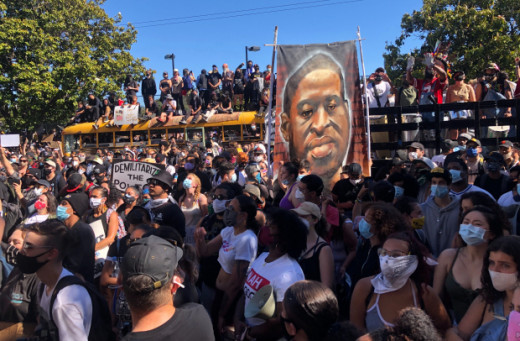
Sources & Further Reading
https://anarchyinaction.org/index.php?title=Burlington_Greens
https://www.dissentmagazine.org/online_articles/trumps-betrayal-of-rojava
http://www.freeocalan.org/wp-content/uploads/2012/09/Ocalan-Democratic-Confederalism.pdf
https://www.greenleft.org.au/content/rojava-example-ecosocialism
https://www.jacobinmag.com/2019/10/rojava-syria-erdogan-turkey-united-states-military
https://mesopotamia.coop/bookchin-ocalan-and-the-dialectics-of-democracy/
https://newrepublic.com/article/154086/bernies-red-vermont
https://www.nytimes.com/2019/10/14/opinion/trump-syria-kurds-turkey.html
https://slate.com/news-and-politics/2020/06/turkey-protests-ypg-kurds-antifa.html
https://theanarchistlibrary.org/library/bookchin-sanders
https://thesunflower.com/50979/opinion/ltte-the-radicalization-of-generation-z/
https://www.vice.com/en_us/article/v74av3/where-does-the-bernie-sanders-movement-go-now
© 2020 JW Barlament
